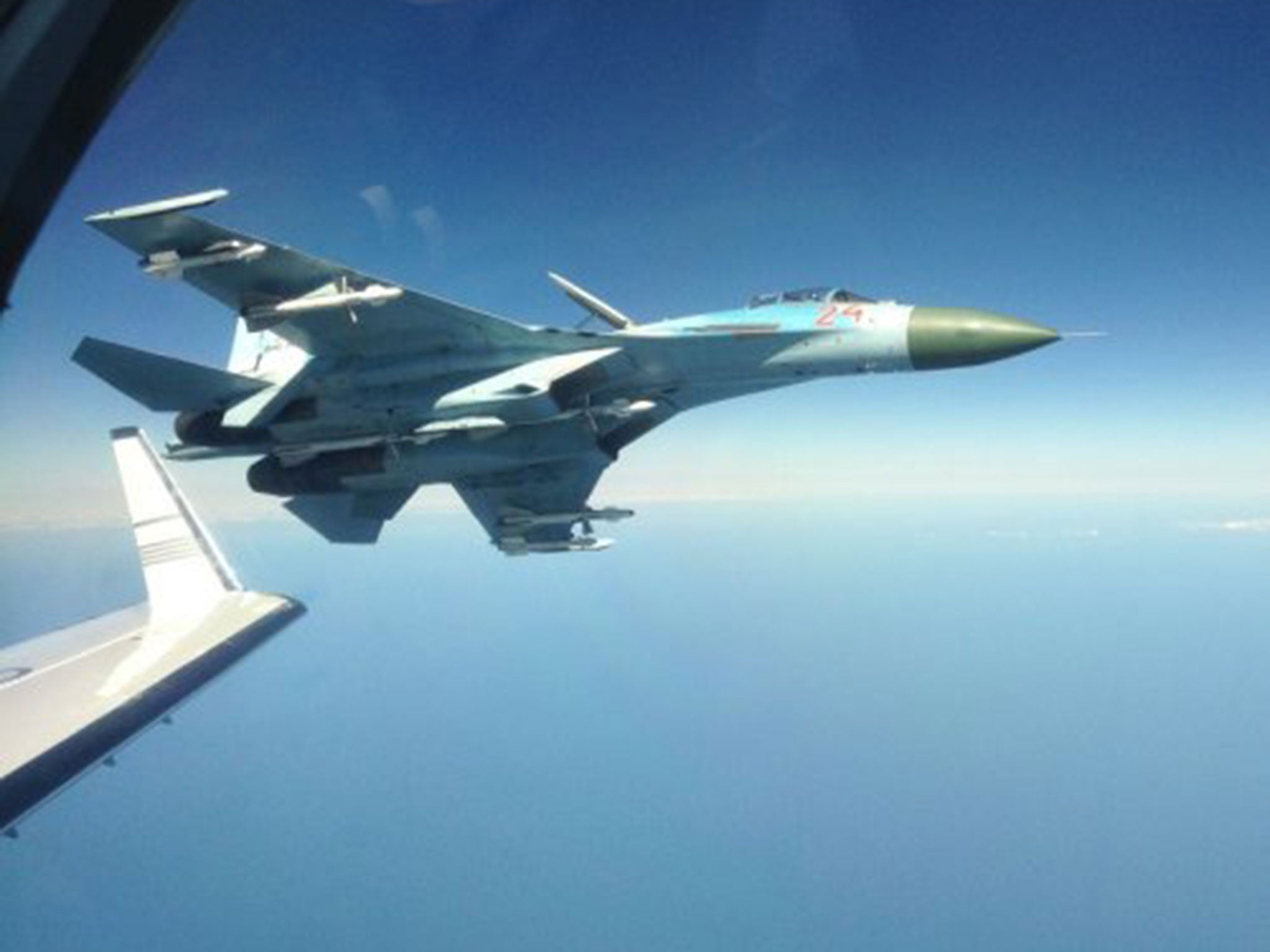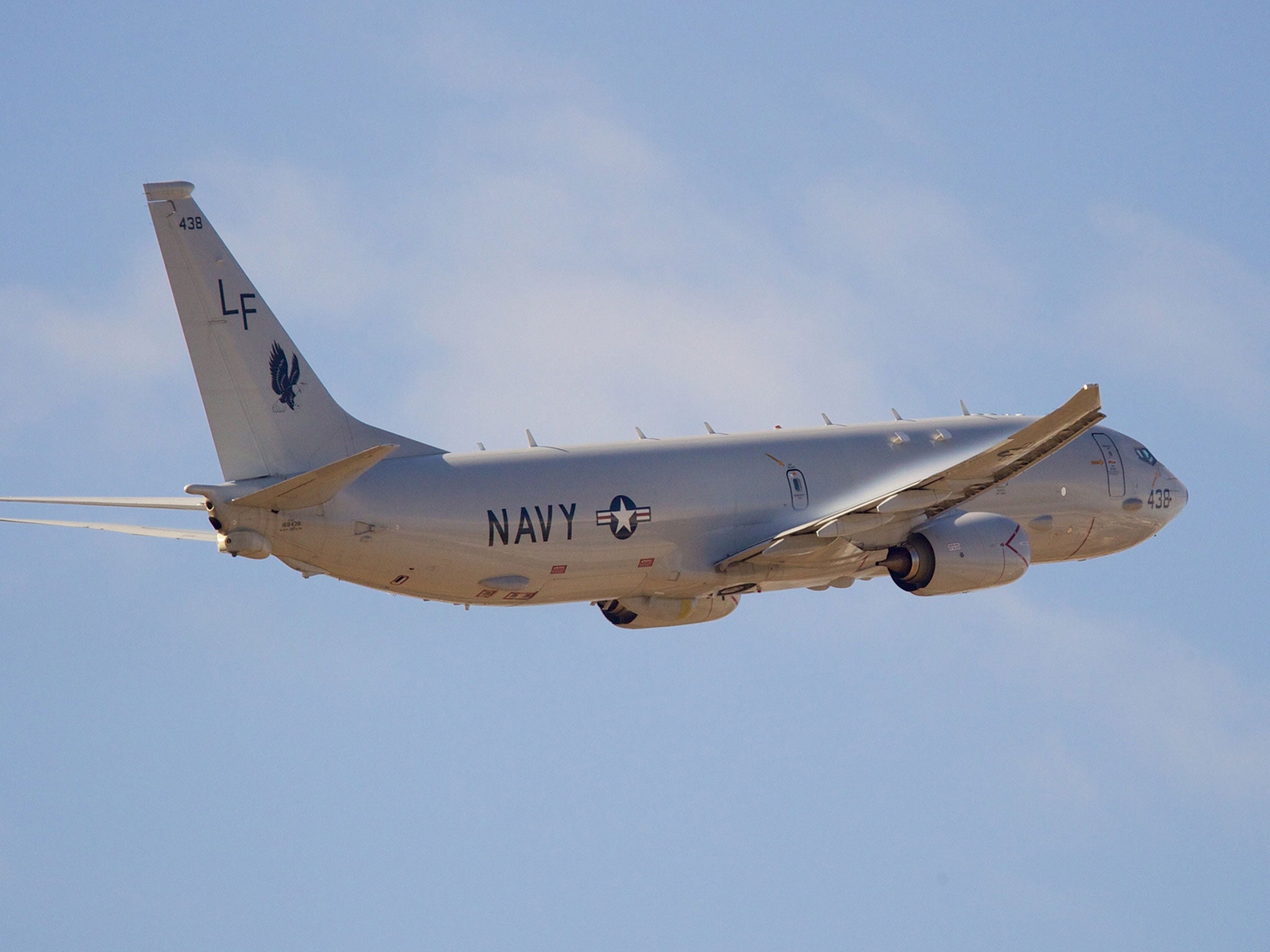Russian fighter jet 'flies within 10ft of American surveillance plane' in latest confrontation over Black Sea
US officials called the manouvre 'dangerous' but Russia says aircraft was approaching border

Your support helps us to tell the story
From reproductive rights to climate change to Big Tech, The Independent is on the ground when the story is developing. Whether it's investigating the financials of Elon Musk's pro-Trump PAC or producing our latest documentary, 'The A Word', which shines a light on the American women fighting for reproductive rights, we know how important it is to parse out the facts from the messaging.
At such a critical moment in US history, we need reporters on the ground. Your donation allows us to keep sending journalists to speak to both sides of the story.
The Independent is trusted by Americans across the entire political spectrum. And unlike many other quality news outlets, we choose not to lock Americans out of our reporting and analysis with paywalls. We believe quality journalism should be available to everyone, paid for by those who can afford it.
Your support makes all the difference.A Russian fighter jet has flown within 10ft of an American surveillance plane in the latest airborne encounter between the two nations’ forces.
Captain Jeff Davis, a spokesperson for the US Department of Defence, said the Russian Sukhoi Su-27 approached a Poseidon aircraft as it flew over the Black Sea on Wednesday.
Calling the manoeuvre “dangerous and unprofessional”, he said the plane was conducting routine operations in international airspace, but Russia insisted it was approaching its border with no communication.

“We have concerns when there is an unsafe manoeuvre like this,” Capt Davis told reporters.
“These actions have the potential to unnecessarily escalate tensions, and could result in a miscalculation or accident.”
A US defence official said the Russian pilot approached to within 30ft of the P-8A before closing to just 10ft.
Major General Igor Konashenkov, from the Russian defence ministry, said jets were sent to intercept the surveillance plane after it approached Russia's southern border twice without its transponders turned on.
“After the Russian fighters got close to the spy planes for visual confirmation and to determine their wing numbers, the American aircraft changed course sharply and flew away,” he said.
“The Russia pilots acted in strict accordance with international rules for flight.”
But a spokesperson for the US European Command, Captain Danny Hernandez, insisted the Poseidon had its transponder turned on during the entire flight, following international law for flight safety.
The incident was one of four intercepts of American aircraft by Russian jets on Wednesday, according to the US, with the one considered unsafe lasting around 19 minutes.
Capt Davis said US Navy aircraft and ships routinely come into contact with Russian units in the Black Sea region and most interactions are safe and professional.
In one more dramatic incident earlier this year, Russian jets buzzed over the USS Donald Cook in the Baltic Sea, coming within 30ftof the warship, and in April US officials said another surveillance plane had been confronted in an “unsafe and unprofessional manner".
The RAF has also scrambled fighter jets to intercept Russian planes nearing British airspace several times this year, generating sonic booms heard across swathes of the country.
Relations between Russia and the West have been strained since the Russian annexation of Crimea from Ukraine in March 2014 and have worsened in the wake of Vladimir Putin’s intervention to support Bashar al-Assad in Syria.
Nato has announced it will strengthen its presence in the Black Sea – surrounded by Bulgaria, Georgia, Romania, Russia, Turkey and Ukraine - as one of three fronts against Russia.
Speaking on Wednesday, Secretary-General Jens Stoltenberg said: "We have seen an increased Russian presence in the Black Sea region and we have also seen a substantial military build-up in Crimea by Russia.
"Nato has decided to increase our presence in the Black Sea…we are working on that with our military planners now to decide exactly how that is going to take place."
The Russian government has previously criticised increased Nato deployments and drills in the region as “not conducive to the strengthening of security".
Join our commenting forum
Join thought-provoking conversations, follow other Independent readers and see their replies
Comments